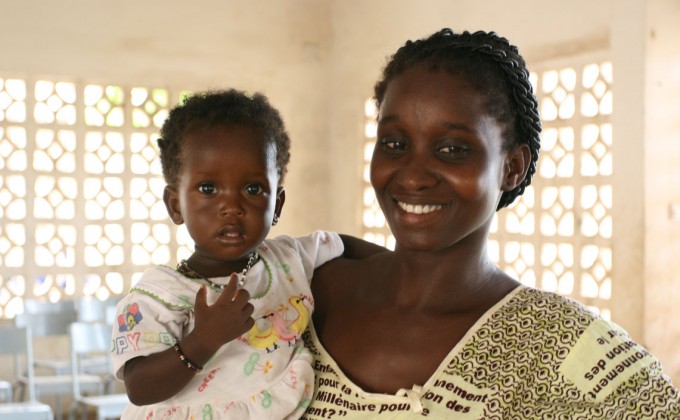
Mali, Kayes region, in the districts of Bafoulabé, Oussoubidiagna, Nioro, Yélimané and Diéma

February 2015 to June 2019

- Part of the regional directorates for Health and Social Development/Solidarity Economy, as well as the directorate for the Promotion of Women, Children and Families
- Representatives of FENASCOM (Fédération Régionale des Associations de Santé Communautaire du Mali) and the regional council
- Social and Health teams in the five MEDIK-supported districts
- Civil society organizations
- Women of childbearing age and newborns

- Unité de santé internationale (USI)
- Kayes regional directorates of Health and Social Development and the Promotion of Women
- Health centres
- Heads of social development services
- Councils and circles in the 5 health districts

CA$5,895,608 (Global Affairs Canada)
 © Laetitia Boudaud
© Laetitia Boudaud
The MEDIK project seeks to reduce delays throughout the three steps of the case management process for obstetrical and neonatal emergencies : the delay between the
first hints of danger and the actual decision to take the woman to the health centre; the delay between the decision to seek help and the arrival at the health centre; and the delay between the woman’s arrival and her effective and adequate admission.
While distance, conditions of the land, lack of financial resources and lack of means of transportation all contribute to these delays, social and cultural factors also play a crucial role. The women’s place in Malian society and family structures, their limited decision-making power, and men’s lack of knowledge surrounding the risks of pregnancy and childbirth are key factors to explain these delays.
By developing a gender-responsive and inclusive approach in all aspects of the project, CECI is helping create a new dynamic in favour of the empowerment of women and the fight to reduce maternal and neonatal mortality.
Efforts to reduce delays, in particular those aiming to mitigate the socioeconomic factors that curb women’s decision-making power, must include actions to build awareness. This is why workshops on the risks of pregnancy and childbirth, on the importance of early consultation, or on the positive impact of empowering women to make decisions regarding their own health are organized. Each district has developed a social communication plan for reproductive health promoting a community-based approach that gets men and boys involved, as well as women and girls. The goal is not only to sensitize the actors (pregnant women, husbands, mothers-in- law, midwives, community relays, health agents, etc.), but also to reinforce collaboration between all stakeholders.
The project aims to improve access and increase the use of quality services through a gender-sensitive approach. The project chose to renovate and/or build community health centres, in closer proximity to the villages, that consider women’s privacy and confidentiality, that receive husbands and other family members, and that provide
housing to attract and retain care providers, especially women.
The health reference centres are progressively being equipped with the necessary material to provide emergency healthcare. Oussoubidiagna’s centre now has access to electricity. The Bafoulabé health referral centre was equipped with an oxygen system.
A fleet of vehicles is progressively being made available to provide communities with better access to their health infrastructure.
The project also includes a capacity-building program aimed at helping the social health teams and the intervention circles with the planning, the management and the monitoring of all activities surrounding maternal and neonatal health. The targeted skills include collecting, analyzing and using sex-disaggregated data. The
goal is to collect all necessary data to inform the results, learn lessons from the project, and attempt to develop an intervention model that could be spread throughout Mali with a focus on gender equality.
The motorcycle ambulance financed by MEDIK is a medicalized three-wheel ambulance accredited by the WHO. It is equipped with an automatic ambulance stretcher, four
hooks, a light for medical exams, a resuscitation kit with a rechargeable 0.5 litre oxygen tank, and masks for adults and children.
Number of women of childbearing age throughout the five districts (2015):
Number of vehicles (ambulances, supervision vehicles, motorcycle ambulances, all terrain motorcycles) given to the regional directorate for Health in 2017:
Number of community health centres built or renovated in 2017: